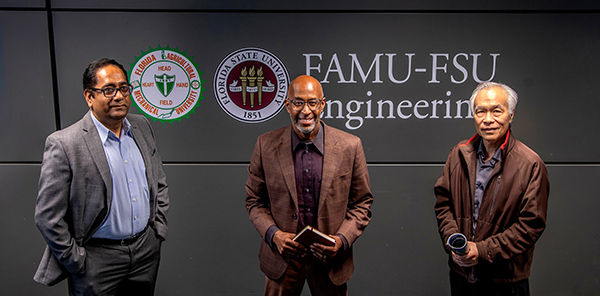
By Gorodenkoff for AdobeStock
Although the U.S. is a global leader in aerospace and aviation talent, there is a lag in the number of students, especially underresourced minorities (URM), attracted to the field. A new program at the FAMU-FSU College of Engineering seeks to change that.
Carl Moore, a mechanical engineering associate professor and researcher at the nation’s joint college, says, “By expanding the participation of URM students to the industry, the U.S. can maintain its competitive edge and ensure greater variety of thought in this essential STEM field.”
The new program, dubbed the Expanded Network for Broader Participation in Aerospace Engineering through Education, Mentoring and Workforce Development (ENBP-AE), expands the reach of a similar program already in place that is led by Professor Chiang Shih. Moore is part of both programs and is the principal investigator of this effort to increase representation in aerospace research and related disciplines.
“The outcomes of an INCLUDES project are more effective collaboration, increased network connectivity and systems change,” Moore says.
ENBP-AE is part of the Eddie Bernice Johnson INCLUDES program at the National Science Foundation. Eddie Bernice is a retired African American member of Congress from Texas and a champion of minority and women’s rights.
Florida A&M University leads the ENBP-AE consortium which includes the engineering programs at Howard University, Tuskegee University, North Carolina A&T State University, Savannah State University and Prairie View A&M University. The Boeing Company, multiple NASA centers, JPL, the Air Force Research Laboratory, and the Florida Space Grant Consortium are some of the project sponsors.
The program will give students the chance for cross-institutional collaboration for senior design projects and undergraduate research opportunities. It will also enable training and workforce development, mentorship and summer internships. Students will also have networking opportunities through the project sponsors and partner institutions.
“Our multi-sector BP-AE partnerships are expanding to include five additional HBCUs, and our mentoring structure and engineering workforce training will have more research and project-based learning activities added to the program,” Moore said.

WHY IT MATTERS:
Moore recalled a story about a student recruited into the NASA MUREP BP-AE program at the college.
“The power of this process crystalized through my interaction with an African American engineering freshman with no parental support and a 2-year-old son. We recruited her into our NASA MUREP BP-AE program, providing her with a NASA internship and a robotics research assistantship. The program connected her with another African American female graduate student who became her near-peer mentor. Soon after completing her BSME, she got a full-time NASA position.
She credits us, but we credit her because she earned every bit. Her journey taught me something. To have a lasting impact, we must do two things simultaneously that may, on first consideration, seem contradictory: approach each student with specialized attention while building a general framework that supports all, no matter their needs. ENBP-AE does that. To dismantle systems of disparity, it provides a scaffolding of near-peer mentors, professional development, research and high-touch projects.”
The work was recently presented at the American Society for Engineering Peer Conference.
“The industry-supported research, aerospace internships, workforce development and mentoring activities for undergraduate and graduate students will bring us closer to filling the strategic need for a highly trained aerospace workforce,” Moore says.
WHO’S INVOLVED:
Moore is working with fellow mechanical engineering professors Chiang Shih and Rajan Kumar; John Kizito and M. Javed Khan, aerospace-focused researchers at NCA& T and Tuskegee, respectively; Mir Hayder at Savannah State; Emmanuel Glakpe at Howard University; and Jeffrey Streator at Prairie View are also working with the team.
WHERE IS THE MONEY COMING FROM:
The National Science Foundation funded the $498,528 two-year program through Florida A&M University as part of its Eddie Bernice Johnson INCLUDES initiative.
RELATED ARTICLES
New $1.2M NASA Grant to Recruit Minority Students To Aerospace Engineering
$1.5M to Expand Hypersonic Research Capability and Train Future Aerospace Engineers Secured via FAMU
